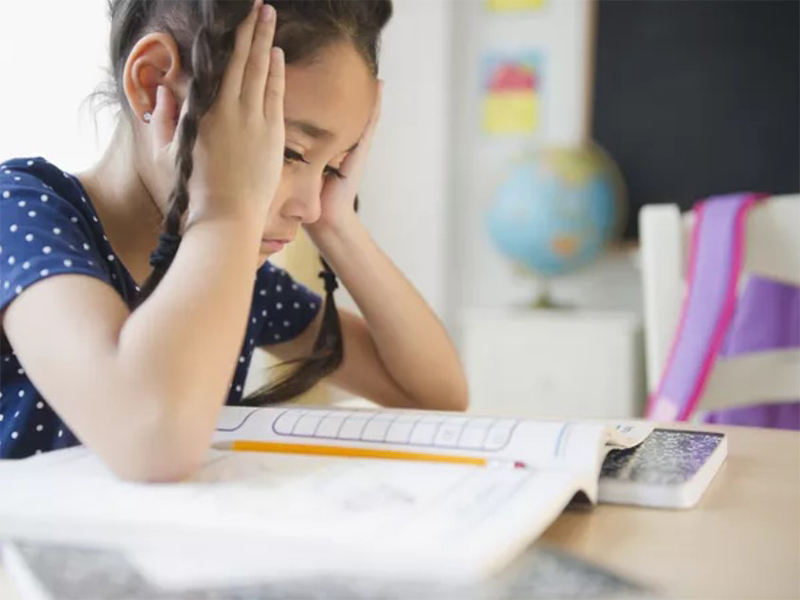Source: VeryWell Health
8 Reasons Most People Aren’t Aware Of
School is rarely a good environment for children with autism. And that can be a serious problem both during the school years and after.
Firstly, autistic kids spend a huge amount of time learning how to cope with an environment that is often out of sync with their abilities and challenges. Then, after having built those skills, the kids must leave that environment for a completely different situation when they graduate or age out.
For many autistic kids, school is far tougher than any work environment for reasons most people have never even fathomed.
Sensory Dysfunction
Children with autism are by definition faced with sensory challenges.2 Many facets of everyday school life—hall buzzers, fluorescent lights, yelling children, echoing gyms—are overwhelming enough for children without autism. For children with autism, the sensory stimuli can be overwhelming, triggering extreme anxiety and autistic behaviors.
Reading and Verbal Comprehension
Standardized testing requires even young children to comprehend and respond to spoken and written language at an expected speed and level. As kids get older, verbal acuity and comprehension are expected to increase.
Children with autism are almost certain to be at a disadvantage during standardized testing as verbal expression and comprehension are major challenges—particularly when it comes to figurative or expressive language.
Executive Functioning
Executive functioning is the ability to plan and execute multi-step projects while taking into account project parameters, timelines, and other factors. For schoolchildren, this means the ability to manage homework, school projects, exam preparation, and event planning, among a plethora of other things.
Executive functioning is a major challenge for almost all autistic people who are generally less comfortable switching between activities or topics.
Fine and Gross Motor Skills
Fine motor skills are critical for writing, drawing, cutting, pasting, and manipulating small objects such as microscope slides and tweezers. Gross motor skills are used for jumping, kicking, throwing, running, and skipping.
Mild to moderate impairment of these skills are common with most children with autism. This includes motor planning in which a child anticipates an action (such as kicking a ball) and positions the body to facilitate that movement.5
Skills like these are central to meeting the scholastic and social demands of elementary school and high school. Any limitations can not only affect the child’s scholastic achievements but also their daily school life.
Social Communication
Autistic people all share difficulty with social communication. Sometimes the difficulties are obvious and severe. Even if they are not and the child is high-functioning, navigating the idiosyncrasies of social interactions can still be challenging.
In school, social interactions are everywhere and in constant flux. Moreover, what’s appropriate in the classroom may be inappropriate in the halls, gym, or playground. The social cues that tell a child when to change social behaviors are often difficult for a child with autism to pick up.
Due to deficits in verbal communication skills, it can be tough for autistic children to tell playful teasing from bullying or to differentiate sarcasm from a statement of fact.
Because of the ever-evolving nature of social interactions (which change with every school year), a child with autism may be socially isolated if they don’t keep up or be seen as introverted if they don’t participate.
Changing Rules and Expectations
Each fall, as students return to school, they find some things are the same but others have changed. What some teachers welcomed in the classroom, such as speaking out without raising your hand, is now forbidden by a new teacher. This can be confusing to a child with autism.
The changes extend not only to the classroom but to peers as well. What was “cool” one year is suddenly “not cool” the next.
Children with autism often have tremendous difficulty with recognizing and adapting to these changes. This leaves them vulnerable to ridicule and censure from those who fail to recognize the child’s limitations.
Changes in Routines
Children with autism thrive on routine and structure. Although school life is based on specific routines and goals, it is still prone to rapid change and adjustments that even children without autism find challenging.
These include special events, substitute teachers, snow days, outings, standardized testing days, and even school holidays. These changes can be even more disruptive to children with autism, making it difficult for them to cope or adjust “on demand.”
Children with special needs have the added burden of needing to leave classes—often in the middle of a lesson—to attend therapy sessions, social skills groups, and other programs intended to help them handle the very experiences they are missing.
Tolerance of Autistic Behaviors
Teachers are people and, like all people, have different levels of tolerance and empathy toward behaviors that are considered “abnormal.”
For example, some teachers find it upsetting when a child with autism will suddenly talk too much about a special interest, have trouble collaborating with peers, or suddenly rock, flick, or move in unexpected ways.
The teacher may also expect everyone in the class to progress at a similar rate and censure a child with autism who does not meet those expectations.
In such cases, a child may be consciously left behind rather than being connected with tutors and programs that can address their individual needs while allowing them to participate in a regular classroom setting.
A Word From VeryWell
Most schools in the United States are not designed to be universally accessible. While more and more schools are making accommodations made for “special needs” children, many still do not. Even those that do rarely have the facilities to address the different challenges that different kids with autism have.
There are autism-only schools, but they also have their pros and cons and may not be the best choice for high-functioning children.
To decide what is best for your child, speak with the school counselor whose role it is to create and implement strategies to aid children with special needs, including autism.

